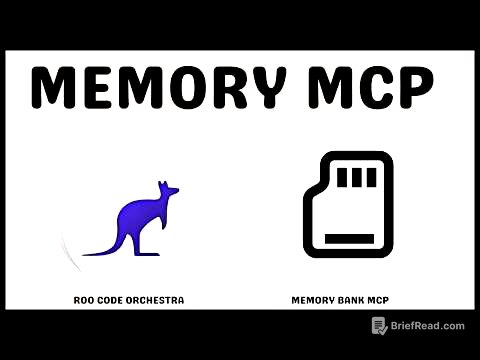TLDR;
This video explores how to leverage human psychology to improve sales and marketing efforts. The speaker, a copywriter and marketer, shares five cognitive biases that can be used to influence consumer behavior. These biases include confirmation bias, scarcity bias, anchoring bias, social proof bias, and loss aversion bias. The speaker emphasizes the importance of using these biases ethically and responsibly.
- Confirmation bias: People are more likely to accept information that confirms their existing beliefs.
- Scarcity bias: People value things more when they are scarce.
- Anchoring bias: People tend to rely heavily on the first piece of information they receive.
- Social proof bias: People are more likely to buy a product if they see others buying it.
- Loss aversion bias: People are more motivated to avoid losses than to gain something new.
Confirmation Bias [1:40]
Confirmation bias describes the tendency for people to favor information that confirms their existing beliefs. The speaker explains that instead of trying to change a customer's beliefs, it's more effective to mirror their existing thoughts and desires. For example, if a customer believes they need to detox, a seller should emphasize the detoxifying properties of their product rather than challenging their belief.
Scarcity Bias [3:02]
Scarcity bias is based on the economic principle of supply and demand. The speaker explains that creating a sense of scarcity can increase the perceived value of a product. However, it's important to create genuine scarcity rather than using misleading tactics like fake limited-time offers. The speaker emphasizes the importance of honesty and authenticity in marketing.
Anchoring Bias [4:48]
Anchoring bias refers to the tendency for people to rely heavily on the first piece of information they receive. The speaker suggests using this bias to set a premium price point for a product. By showcasing a high-priced option first, subsequent products will appear more affordable in comparison. This strategy can make customers feel like they are getting a good deal, even if the price is still relatively high.
Social Proof Bias [6:32]
Social proof bias is the tendency for people to follow the actions of others. The speaker explains that using genuine testimonials and highlighting repeat customers can build social proof for a product. This can make potential buyers more likely to trust the product and make a purchase. The speaker also mentions the importance of adhering to FTC guidelines regarding income claims and reviews.
Loss Aversion Bias [8:23]
Loss aversion bias describes the tendency for people to be more motivated to avoid losses than to gain something new. The speaker suggests framing a product as a solution to a persistent problem. This can create a sense of urgency and make customers more likely to buy. For example, a tax management service could be positioned as a way to avoid making costly mistakes on tax returns.









